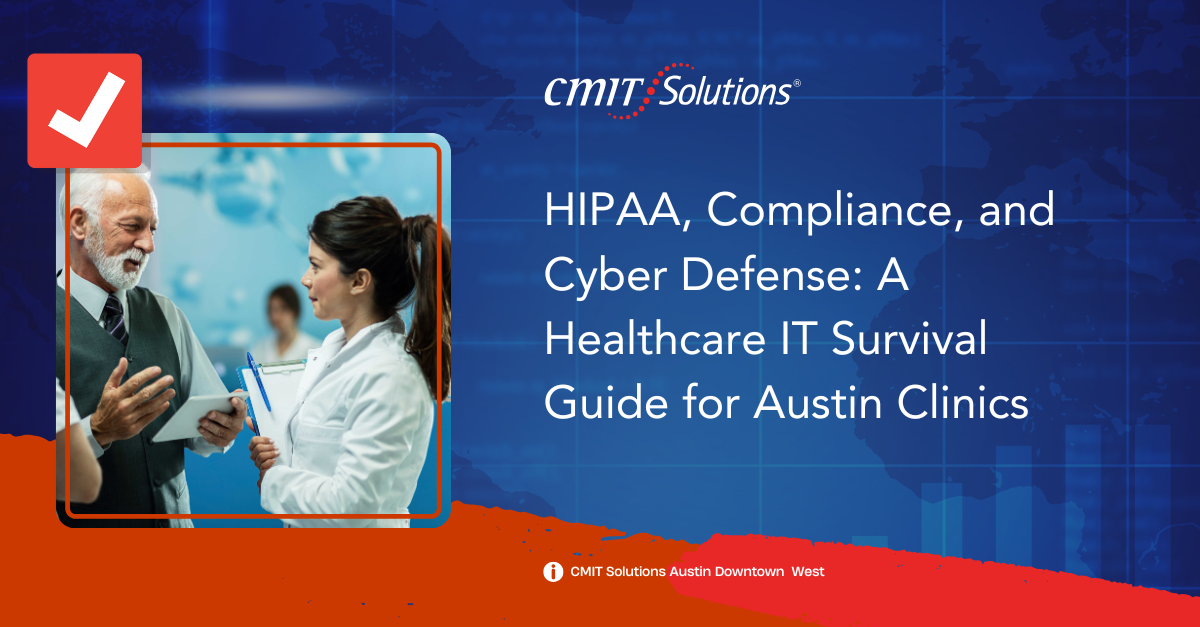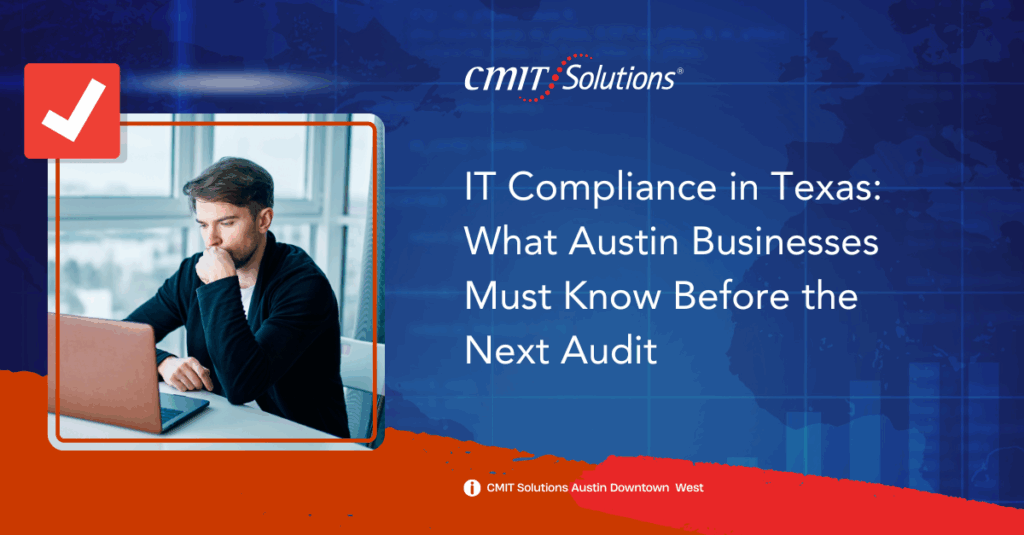Introduction: Why Healthcare IT Security in Austin Needs a Survival Guide
Healthcare providers in Austin face unique challenges in safeguarding patient information while staying compliant with HIPAA and state-level privacy regulations. With increasing cyberattacks targeting electronic health records (EHRs), clinics, practices, and specialty centers must rethink their IT strategy from the ground up. HIPAA compliance isn’t optional—it’s a federal mandate with strict penalties. But compliance alone is no longer enough. You need a robust cyber defense framework.
This guide explores how you can shield your practice using the right IT strategy, reduce risk, improve operational efficiency, and maintain trust with patients and regulators.
The Real Cost of Non-Compliance and Data Breaches
Failing to meet HIPAA regulations can lead to fines ranging from thousands to millions of dollars. Even worse, it can permanently damage your reputation. In Austin, where tech-savvy patients expect modern digital experiences and data privacy, any lapse can be catastrophic. Local client reviews show how practices maintain trust through strong cybersecurity.
Beyond financial loss, a breach can lead to:
- Loss of patient trust
- Legal consequences
- Audit investigations
- Business downtime
That’s why working with a healthcare IT provider that prioritizes HIPAA compliance is essential.
HIPAA: Beyond Checklists, Towards Actionable IT Compliance
The Health Insurance Portability and Accountability Act (HIPAA) establishes rules to protect PHI (Protected Health Information). But many clinics in Austin make the mistake of treating it as a once-a-year checklist.
Effective HIPAA compliance involves:
- Risk analysis and ongoing assessments
- Security incident procedures
- Access controls and encryption
- Employee training and phishing simulations
- Business associate agreements (BAAs)
Each of these areas must be backed by a tailored technology solution that integrates seamlessly with your clinic’s operations.
Understanding Cyber Threats in Austin’s Healthcare Space
Cybercriminals see small-to-mid-sized healthcare practices as easy targets. Clinics in downtown Austin are particularly vulnerable due to dense patient data and lack of enterprise-grade IT defenses.
Common threats like ransomware attacks and email phishing can be mitigated with cybersecurity audits tailored for healthcare practices.
Core Pillars of a Healthcare-Focused Cybersecurity Strategy
To survive and thrive, clinics need more than antivirus software. They need an integrated, proactive, and compliant approach that addresses all attack surfaces.
Key pillars include:
1. Network Security and Segmentation
Separate patient data systems from public-facing ones. Use firewalls, VLANs, and intrusion detection systems to create a secure perimeter. These network security strategies are fundamental for compliance.
2. Data Backup and Recovery
HIPAA requires regular backups and secure data restoration. An effective data backup and disaster recovery solution ensures minimal downtime during ransomware attacks.
3. Endpoint Detection and Response (EDR)
Go beyond traditional antivirus. Detect suspicious behavior on every device from reception PCs to doctors’ tablets. Endpoint security ensures threats are detected before damage occurs.
4. Cloud Compliance and Encryption
Cloud-based EHRs require end-to-end encryption, secure access controls, and logging. Clinics using cloud solutions should confirm their HIPAA cloud compliance with expert IT providers.
Staff Training: Your First Line of Cyber Defense
Your staff are your strongest allies—or your weakest link. Most data breaches start with a simple mistake, like clicking a malicious email.
Effective strategies include:
- Monthly security awareness training
- Simulated phishing attacks
- Clear reporting protocols
Training provided by IT experts builds a strong cybersecurity culture within your clinic.
Choosing the Right Healthcare IT Partner in Austin
Not all IT providers understand healthcare. You need a team that speaks HIPAA fluently and stays ahead of industry threats. Look for:
- Proven experience with healthcare clients
- 24/7 monitoring and incident response
- Compliance documentation support
- Regular technology reviews
See what Austin healthcare clients say about their trusted IT partners.
Mobile Device and BYOD Security
Doctors and staff often use smartphones and tablets to access records. Mobile device management (MDM) is essential for:
- Enforcing encryption
- Remote wiping
- App usage restrictions
Developing a secure BYOD policy ensures HIPAA compliance is never compromised.
Compliance Audits and Reporting Made Easy
HIPAA audits don’t have to be stressful. With centralized documentation, encrypted storage, and regular reporting, you’re always prepared.
Your IT team should provide:
- Policy documentation templates
- Risk analysis reports
- User access logs
- Training compliance metrics
Proactive audit preparation tools make inspections seamless and stress-free.
The Role of Managed IT Services in Healthcare
Austin clinics juggling operations, patient care, and compliance often can’t manage IT on their own. That’s where managed IT services support comes into play.
Benefits include:
- Predictable monthly costs
- Continuous monitoring
- Vendor management
- Remote and onsite support
Incident Response: When Minutes Matter
Cyber incidents require fast, structured response plans. A well-documented incident response plan can:
- Minimize damage
- Preserve evidence
- Restore operations faster
Effective partners offer real-time alerts, data forensics, and root cause analysis.
A Unified IT Strategy: Linking Tech to Growth
Cybersecurity and HIPAA compliance aren’t just about risk. Done right, they drive efficiency and patient satisfaction.
Unified strategies support faster check-ins, secure telehealth, and reliable patient access. Learn how Austin-specific IT planning drives results.
Final Thoughts: Building IT Resilience in Austin Healthcare
Survival in today’s healthcare world means aligning technology with compliance and security. It requires trusted IT partners, dedicated planning, and ongoing training.
When your clinic invests in comprehensive healthcare IT, you’re not just surviving—you’re thriving.
Reach out to our local IT experts to start building your custom plan, or learn more about our team and our commitment to Austin’s healthcare providers.







